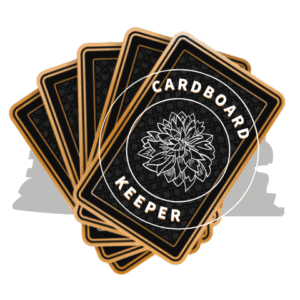I’ve been cracking open Magic The Gathering booster packs for over 10 years and the feeling never seems to get old, but I never once thought of it as gambling. With more people talking about this topic, I thought it would be best to take a bit of a deeper look at whether Magic The Gathering is gambling or not.
Magic The Gathering is not gambling. Wizards of the Coast doesn’t assign a monetary value to individual cards and sells what is advertised on card packs. Magic doesn’t advertise potential monetary gain decided mainly by chance, but some governments still choose to apply gambling laws to MTG.
It’s important to note that currently there are many aspects and different mediums that combine to make up what we generally consider to be Magic The Gathering today.
Even though, as a whole, Magic The Gathering isn’t defined as gambling as of this moment, some of the individual aspects present within MTG’s competitive play and newer promotional behavior by Wizards of the Coast should be looked at further.
I’m by no means a lawyer, but investigating these different elements should help anyone to understand why there may be some cause for concern and why some governments are considering labeling Magic The Gathering as gambling.
Defining Gambling For Magic The Gathering
When discussing whether parts of Magic The Gathering is or isn’t gambling, we need to make sure we are all on the same page when it comes to what we mean by the word “gambling”.
Which is easier said than done.
In a perfect world we could simply look up the word “gambling” in the dictionary and we would get these semantic definitions:
1. Play games of chance for money; bet.
2. Take risky action in the hope of a desired result.
Definitions from Oxford Language Dictionary
Which aren’t very helpful. These definitions are extremely broad and vague.
If we were to use these definitions then Magic The Gathering could definitely be considered gambling, but so would asking someone out on a date according to number 2… Not exactly what we are looking for.
If we just skip to the legal definition of what is considered gambling with regards to gaming, then we get something a little better defined.
“The act or practice of gambling; an agreement between two or more individuals to play collectively at a game of chance for a stake or wager, which will become the property of the winner and to which all involved make a contribution.”
definations from legal-dictionary.thefreedictionary.com
This is far more useful than our previous definitions when trying to work out if MTG is gambling, but even with this, there is a big problem.
Since 1990, gaming and gambling laws have changed frequently potentially in response to the emergence of new technologies such as virtual reality and e-sports.
On top of this, every society decides what should be considered gambling in their own unique way.
In some countries, the same activities that are frowned upon, are commonly accepted with ease in others.
In situations like these, it is impossible to globally define what gambling truly is.
Fun Fact: “Pachinko” in Japan is widely seen as a kind of Japanese slot machine game. However in Japan, despite gambling being illegal in the country, Pachinko parlors are incredibly popular and common.
To keep things simple, let’s stick to the legal definition that we currently have for gambling while evaluating different aspects of Magic The Gathering.
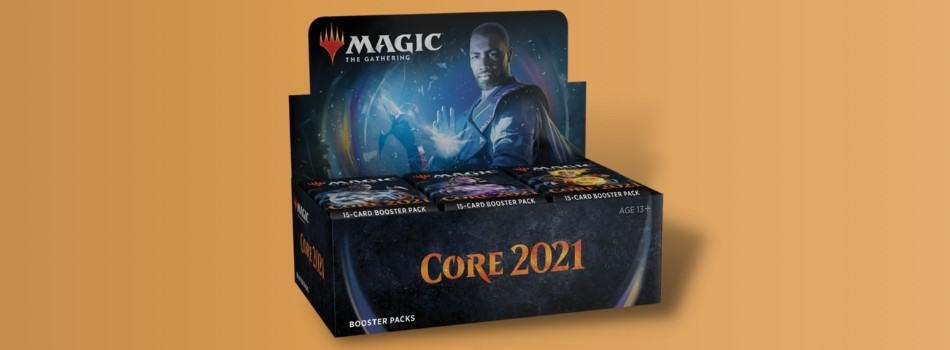
Are Magic The Gathering Booster Packs Gambling?
As a general rule, booster packs are not gambling. Booster packs don’t advertise potential monetary gain when opened and contain disclosed content. Officially, all cards have the same monetary value independent of card type. Card values assigned by a secondary market aren’t officially recognized.
However, not all Magic The Gathering booster packs are made and sold in the same way.
Some of the practices that Wizards of the Coast, publishers of Magic The Gathering, have engaged in recently with their booster packs may be cause for concern.
When looking at a regular booster pack, it contains 16 cards; 15 playing cards, and 1 marketing card or token.
Of those 15 cards that are within the pack, you are guaranteed to receive:
- 1 Basic land
- 10 Common cards
- 3 Uncommon cards
- 1 Rare or 1 Mythic rare card
Additionally, there is a chance for one of the standard cards to be replaced with a foil card that could be of any rarity.
Many individuals, and even some regulatory agencies, think that Magic The Gathering booster packs should be considered gambling.
They argue that players are spending a certain amount of money hoping to get cards that are more monetarily valuable than the amount of money spent on buying the booster pack.
However, this notion is slightly misleading as it makes a few incorrect assumptions about the majority of Magic The Gathering players and their relationship with the company Wizards of the Coasts.
The majority of MTG players do not open booster packs with the primary intention of finding high monetary value cards, to then resell on the secondary market.
Most players open booster packs to use the cards in draft, build decks, or trade with other players for cards needed for their collection – The primary intended purpose of collectible trading card games.
We do need to acknowledge that, yes, players who consider themselves a part of the “MTG Finance” community do exist. These buyers and sellers on Magic’s secondary market with a focus on making a profit, claim their actions are similar to individuals that buy and sell stocks on the stock market.
While this behavior could definitely raise the eyebrows of some concerned about gambling, this small population of people by no means represents the larger community of Magic The Gathering players as a whole.
Technically, Wizards of the Coast do not assign any monetary or nominal value to any of their cards.
It’s the player base that assigns cards with an intrinsic value and drives the prices of cards either up or down, creating their own market for the cards.
Furthermore, when we look at gambling at a casino or when you purchase a lottery ticket, the result of winning has a defined monetary value assigned by the governing body in charge of the competition/game.
This is not the same as with MTG booster packs as it is the players themselves that assign a value to individual cards and not Wizards of the Coast who have officially stated all cards have the same monetary value.
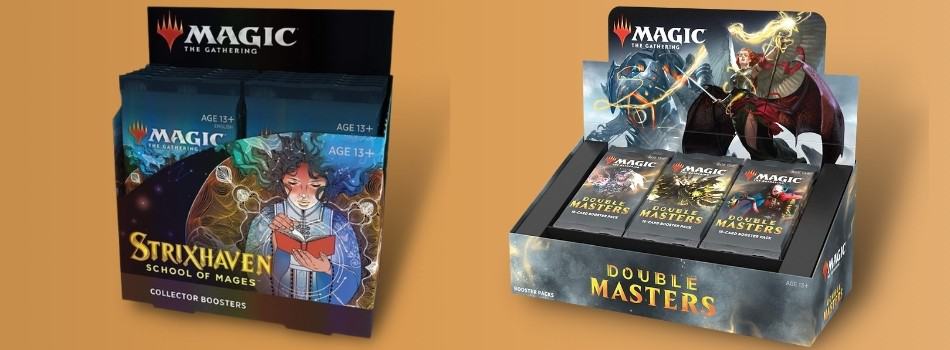
Why Are Magic The Gathering “Premium” Booster Packs Expensive?
So generally speaking Magic The Gathering booster packs are not considered gambling, however, issues start to arise when you look at new promotional practices done by Wizards of the Coast.
For example, promotional booster packs such as their “Modern Masters” series, which contained the exact same amount of cards as a normal booster pack, but priced at $3 more ($6.99).
Here is where it gets a little bit confusing as to how Wizards of the Coast can justify the extra cost associated with these so-called “Premium Booster Packs” If they are not adding extra cards to each pack.
After all, they claim that all cards, in their eyes, have the same monetary value, so why are these 15 cards $3 more expensive than a normal booster pack? ($3.99)
If they stand by that claim and truly don’t acknowledge the values associated with their cards from the secondary market assigned by the players themselves, then it seems a little odd for Wizards to come out with packs that contain the same amount of cards but at a higher price point.
In isolation, these so-called premium packs do follow the same rules as normal booster packs, the contents of the packs are declared, and you do get what is advertised, so again, it would be hard to define this as gambling.
However, it’s fair to say Magic The Gathering is playing with fire.
When you start to compare normal and premium booster packs with different price points, but the same amount of cards, it becomes difficult to believe that Wizards of the Coast truly don’t acknowledge the presence of the secondary market and the value of their cards on it.
In fact, some people and organizations find it too hard to believe and have tried to take legal action against trading card game companies, claiming their products are a form of gambling.
Is Magic The Gathering considered gambling legally?
At this moment, the widely held belief on this topic is that, if Wizards of the Coast were to officially acknowledge the difference in market value between cards, then there would be grounds to classify Magic The Gathering as gambling.
Why?
If Wizards of the Coast were to claim their cards have market value, they would be forced to acknowledge or admit that opening booster packs are in essence gambling for goods of higher value – Often referred to as “Chase Cards” in trading card game communities.
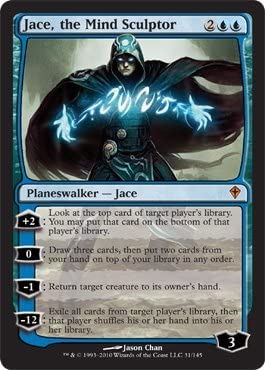
However, previous court cases around trading card games may suggest that the official acknowledgment from Wizards of the Coast on this matter may not be needed.
We all know the importance of gaming laws, but this is one that often slips under the radar.
The important part is whether an element of chance determines who wins money or something of “value”. The “value” part plays a key role in determining whether or not a game falls into gambling legislation.
One of the few published instances of a lawsuit being filed against a trading card game in connection with gambling involves baseball cards.
The lawsuit offers some insight as to whether or not the trading card game Magic: The Gathering may be legally considered gambling in the future.
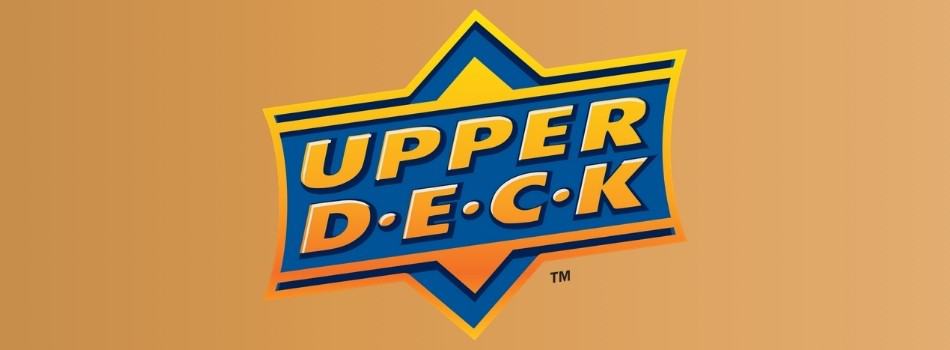
Schwartz v. Upper Deck Co.
In the US federal case, Schwartz v. Upper Deck Co. held in California, a case was brought against the card game company Upper Deck Co. With the intent to sue them on the grounds of alleged “Gambling Activity”.
The crux of this legal battle rested on the idea that trading card games are in fact gambling and can therefore be subject to the legal claims being made.
During the processings, the court made a few key conclusions, one being that a trading card company’s intentions or the absence of their official condoning of a secondary market, is irrelevant.
“Plaintiffs adequately allege that the chase cards have a cash value readily ascertainable in the secondary market which makes them a valuable prize.”
BREWSTER, District Judge.[1]
Here, despite what Wizards of the Coast insists about Magic the gathering cards all having the same monetary value, the court agrees that a strong argument can be made that some cards are, in fact, more valuable than others due to their secondary market.
And, just like Wizards of the Coast would, the trading card company “Upper Deck Co” pushes back against this notion during the court case – stating that they are not linked to the secondary market.
I was going to paraphrase the quote below as it’s a bit long, but the court sums up this entire point so perfectly, that I just had to leave it all in.
“Defendant argues that the fact that people in the secondary market will pay cash for these cards “is beyond Upper Deck’s control.” This argument is disingenuous.
The manufacturers of trading cards are inextricably linked to the secondary market.
The relative numbers of cards produced by manufacturers has a direct effect on their value in the secondary market. In order to inflate the value of cards on the secondary market, manufacturers produce the most popular cards in limited numbers. Simple supply and demand economics dictates that high demand coupled with low availability will cause the price to skyrocket.
When the price of cards on the secondary market rises, it allows the manufacturers to charge more for their sealed packages of cards. The more the chase card is worth, the more people are willing to pay for the chance of receiving a valuable chase card.”
BREWSTER, District Judge.[1]
Not only is the above quote hugely damaging to the idea that as long as Magic the Gathering doesn’t acknowledge the secondary market It can’t be considered gambling, but it also touches on our conversation about “premium packs”.
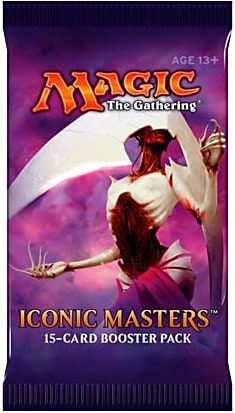
Sets like Modern Masters not only charge more money for a booster pack that contains the same amount of cards, but they also print these sets in limited quantities.
Arguable with the intent to make them artificially scarce and increase the price they can charge, something that the court also points out.
“If the manufacturers were truly out to sell people cards containing their favorite players, they would produce larger numbers of cards of the most popular players. This way, everyone who buys a pack of cards would be almost guaranteed to receive the cards they desire.
Instead, by manufacturing cards of the most popular players in limited quantities, purchasers are required to buy many more packages of cards in order to obtain the cards they desire.”
BREWSTER, District Judge.[1]
It’s clear to see that in the eyes of this court, regardless of whether or not Wizards of the Coast, the company who makes “Magic: The Gathering” do, or don’t, consider buying a booster pack to be gambling under the law – it is irrelevant.
Needless to say, if Wizards of the Coast were to acknowledge the market value of their cards, it would make it easier to make the argument that Magic The Gathering can be linked to gambling, but their official acknowledgment doesn’t seem to be necessary.
So slam dunk right? Opening Magic the gathering booster packs is actually gambling then?
mmmm… Not quite.
You see, this lawsuit seems to have spanned over 3 years (1997-2000).
In the year 2000, the lawsuit was dismissed along with any official gambling claims against the trading card company.[2]
Meaning, despite all the statements made by the court, they lacked the standing to push through the lawsuit and no charges related to gambling could be made.
There was one other “Racketeer Influenced and Corrupt Organizations” (RICO) legal case I was able to find that tries to link trading card games to gambling – this one specifically names Wizards of the Coast in the legal suit.
Chaset v. Fleer/Skybox Int’l
Chaset v. Fleer/Skybox Int’l was a similar legal case to our previous lawsuit, but centered around Pokémon cards.[3]
In this instance, Wizards of the Coast defends Pokémon cards and their position by stating that “Trading Card Games” are different from “Collectible Sports Cards” due to the value the trading cards have as game pieces within the game itself.
The court doesn’t appear to comment on the validity of this defense and unfortunately, just like our last lawsuit, the case was simply dismissed.
The other side didn’t have enough standing to demonstrate to the court sufficient connection to damages or harm they encountered to pursue the case any further.
It would have been very insightful to know if the court would have sided with Wizards of the Coast and made a distinction between “Trading Cards Games” and “Collectible Cards”.
Regardless, no legal consequences related to gambling and trading card games were made on both occasions and we can’t draw a definitive conclusion from it.
For now, it’s safe to say that Magic The Gathering booster packs are in the clear which regards to being considered gambling.
However, it’s clear from some of the above examples that this might not always be the case, especially as Magic The Gathering continues to expand into the uncertain digital world with Magic the Gathering Arena.
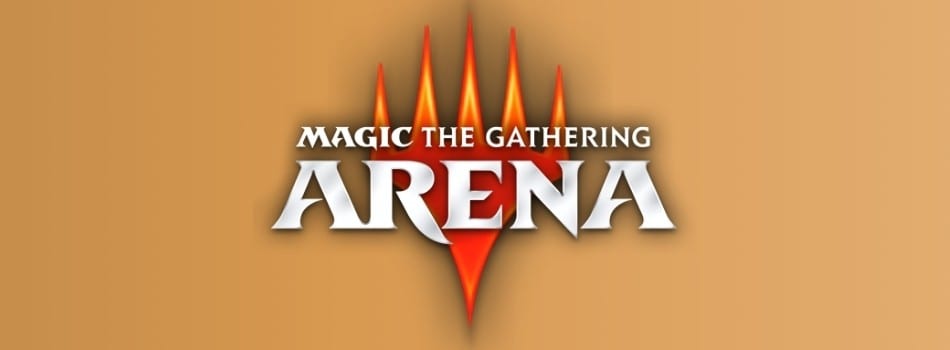
Is Magic The Gathering Arena Consider Gambling?
MTG Arena is another grey area that many players, fans, and onlookers have mixed feelings about.
The concept of Arena is that you spend real currency to buy a virtual commodity called gems. You can use these gems to purchase
- Booster Packs (containing only 8 virtual cards)
- Virtual Sleeves
- Entry to MTG Arena competitions
- Unlock Mastery Passes
The same concept of physical booster packs with regards to gambling can be applied to Arean’s virtual booster packs. You receive what is advertised and evey card within that virtual booster pack is of the same monetary value, regardless of in-game rarity.
As we’ve seen already, a somewhat dubious defence of Magic The Gathering booster packs, however, in the case of Magic The Gathering Arena, it kinda works.
There is no trading within Magic The Gathering Arena.
This initially upset fans on the game’s release and was viewed as an attempt by Wizards of the Coast to squeeze more money out of players to get the cards they wanted.
Now, while the above may still be true, when looking at this decision through the lens of this article, it may have been done to avoid future legal issues.
If no trading is allowed in Magic The Gathering Arena, then the secondary market also does not exist. Without a secondary market to contradict Wizard’s of the Coast’s stance that every card has the same monetary value, the argument would appear to have more validity.
One thing that is less well known is that there are individuals that build up Magic The Gathering Arena accounts and then sell them off – a discussion that probably deserves its very own article.
Needless to say, WotC could easily look to take proactive measures against this and publicly condemn this practice, claiming it’s in violation of their terms and conditions.
With other online games such as CSGO (Counter-Strike Global Offensive) coming under fire due to their “skins” system[4] – which gave players the chances to random receive valuable in-game items that they could trade and sell on a secondary market – it comes as no surprise why Magic The Gathering Arena wants to avoid similar issues.
The problem with this solution is that, although it potentially gets rid of the secondary market issue for Wizards of the Coast, there isn’t much, if anything, that now separates Magic The Gathering booster packs on Arena from “Loot Boxes”.
There is an even higher risk that WotC might get into hot water because gambling laws recently have had an increased focus on how to deal and classify the video game loot box systems.
Several countries have started cracking down on loot boxes in video games as unlicensed gambling.
The irony for Wizards of the Coast is that game developers, in general, tend to claim in their defense of loot boxes, that they’re not gambling because they’re similar to trading card boosters.
As some countries continue to reject that argument, there is a chance regulatory agencies will return their attention to trading cards and conclude that, if they just prohibited loot boxes, then they should also potentially consider doing the same for trading cards.
Legally speaking, the world is still in the middle of trying to decide what it plans to do about loot boxes in games, but we can be sure, whatever decision ends up being made will impact the world of trading card games in some way.
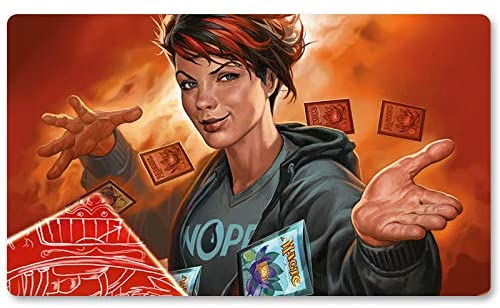
Are Magic the Gathering Tournaments Considered Gambling?
In general, Magic The Gathering tournaments aren’t considered to be gambling as it is not classified as a “game of chance”. However, governments such as Germany view tournaments as gambling, and MTG competitive events can only be attended by people who are 18 years or older.
This is why Wizards of the Coast does not hold or sanction any Grand Prix tournaments in countries such as Germany.
However, we can argue again that even though players enter a tournament via entry fee and receive a random draft booster depending on what competition and format, it is still a game or sport with an outcome not being decided primarily by chance.
From my years of experience playing entering Magic The Gathering tournaments, I think most players would agree that there is a degree of luck involved when playing, but your skill as a player will be the main deciding factor across most of your games.
Players have to make their decks and compete with other players to advance through stages of varying player difficulty to end up the winner through skill.
Some factors that go into a game of Magic The Gathering are:
- deck building
- side boarding
- bluffing
- reading opponents
- psychological warfare
- theory
- situational context
…and more.
Even though a player may be lucky in terms of topdecking a card, their chances are slim if they do not have the adequate skill to play MTG at a competitive tournament level.
I’ll be writing a whole article looking as to whether Magic The Gathering is more luck than skill, so keep your eyes open for that!
Even though we’ve been able to somewhat define gambling and how it relates to different areas of Magic The Gathering, the subject matter is ever-changing.
For now, I’m still inclined to refer to Magic The Gathering as “technically not gambling”, but I’m not sure it will stay that way for long.
We can definitely agree that some trading card companies are using and manipulating their player base to make money through various “schemes” that look dangerously similar to common practices in gambling.
Even if Magic The Gathering were to be considered gambling in the future, I don’t believe there is anything inherently wrong with that.
It is important though, that you are aware of the potential connection and, like most good things in life, you exercise moderation and don’t overextend yourself financially when it comes to hobbies you enjoy.
I’ll continue to keep cracking packs from time to time, but I’ll be keeping my eye on this ever-evolving topic and encourage you to also do the same.
